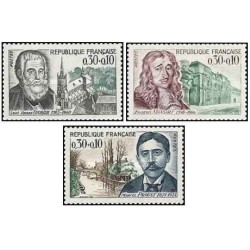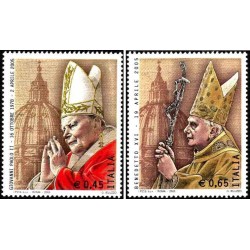- جدید
- ناموجود



توجه : جهت برخورداری از تخفیف سایت ثبت نام و با کد کاربری خود سفارش ثبت نمائید. زیرا تخفیف فقط برای اعضا در نظر گرفته شده و قابل رویت است.
توجه : درج کد پستی و شماره تلفن همراه و ثابت جهت ارسال مرسوله الزامیست .
توجه:حداقل ارزش بسته سفارش شده بدون هزینه پستی می بایست 100000 ریال باشد
لطفا درصورت نیاز به راهنمائی با شماره 09381506644 تماس بگیرید.
Kashi Prasad Jayaswal (27 November 1881 – 4 August 1937) was an Indian historian and lawyer. One of the intellectual forces behind the Indian nationalist movement, Jayaswal's works 'Hindu Polity' (1918) and 'History of India, 150 A.D. to 350 A.D.' (1933) are classics of ancient Indian historical literature. Among other things, Jayaswal is credited with showing that Indian republics, based on the principles of representation and collective decision-making, were among the oldest and most powerful of the ancient world.
Jayaswal was born in Mirzapur, Uttar Pradesh, and graduated from Allahabad University. He went on to Jesus College, Oxford University, where he was awarded the Davis Scholarship in Chinese and graduated with a M.A. in Ancient Indian History in 1909. He was called to the Bar of Lincoln's Inn in London in 1910. After returning to India, Jayaswal set up practice at the Calcutta High Court, where he came into contact with Sir Ashutosh Mukherjee, who inspired Jayaswal to undertake further research in ancient Indian history. Jayaswal moved to Patna in 1916, and remained there permanently.[1]
A prolific scholar, Jayaswal wrote more than 120 research papers in addition to 11 books and numerous commentaries and translations. He also played a pioneering role in excavating and restoring ancient sites, including the university of Nalanda in modern Bihar. He was also an expert in Numismatics, and his discovery of several coins of the Maurya and Gupta periods led to his being the first Indian to be invited to speak at the Royal Asiatic Society of London in 1931.[2] Jayaswal was twice elected president of the Numismatic Society of India, and was awarded the degree of Doctor of Philosophy (Honoris Cause) by Benares Hindu University and Patna University.
Jayaswal is the grandfather of renowned Oxford economist Sanjaya Lall, and the father of the distinguished surgeon Dr P.N. Jayaswal.
The famous Historian Dr. K.P. Jayaswal loved Rashtrakavi Ramdhari Singh 'Dinkar' like a son and during the early days of his poetic career, helped him in every way.[3][4] He died on 4 August 1937, which was a great blow to the young poet.[4] Much later, he wrote in Kalpna, a magazine published from Hyderabad, "It was a good thing that Jaiswalji was my first admirer. Now when I have savoured the love and encouragement of the Sun, Moon, Varun, Kuber, Indra, Brihaspati, Shachi and Brahmani, it is clear that none of them was like Jaiswalji. As I heard the news of his death, the world became a dark place for me. I did not know what to do."[4] Actually Jaiswalji was the first person to appreciate the historical sense in the poetry of Dinkar.[4]
The K.P. Jayaswal Research Institute in Patna was established by the Government of Bihar in 1950 with the object of promoting "historical research, archaeological excavation and investigations and publication of works of permanent value to scholars". Its founding director was Dr.A.S. Altekar and its first Research Fellow was Dr. Lakshaman Jha, who later became the Vice Chancellor of LN Mithila University. The institute has undertaken the editing and publication of the famous Tibetan Sansrkit Text Series.
Between 1999 and 2010, the institute carried out excavations at a site named Panr (Paandava-sthaana or Panda) near Dalsinghsarai in Samastipur district, where continuous series of settlements dating from 4500 BC to about 600 AD have been unearthed. Burnt brick structures dating back to Shunga and Kushana periods have also been dug. Radio carbon dating was carried out by the Birbal Sahni Institute of Paleobotany in Lucknow (-press release by Dr Bijoy Kumar Choudhary, Director, on Feb 3, 2012, in Dainik Jagran). Terracotta figures, gem stones (cornelian, agate, etc.), and latter day inscriptions in Brahmi script have been found.
Numerous research scholars have been appointed by the institute to carry out historical research in various fields. The Institute has published 125 monographs on different themes of history, particularly that of Bihar. Noted Maithili writer Pandit Baldev Mishra "Jyotishacharya" was appointed as a research scholar at the institute in 1952 by the Government of Bihar to decipher the Pali and Prakrit language inscriptions fo und in Bihar.[5]
تشکر نظر شما نمی تواند ارسال شود
گزارش کردن نظر
گزارش ارسال شد
گزارش شما نمی تواند ارسال شود
بررسی خود را بنویسید
نظر ارسال شد
نظر شما نمی تواند ارسال شود

check_circle
check_circle















